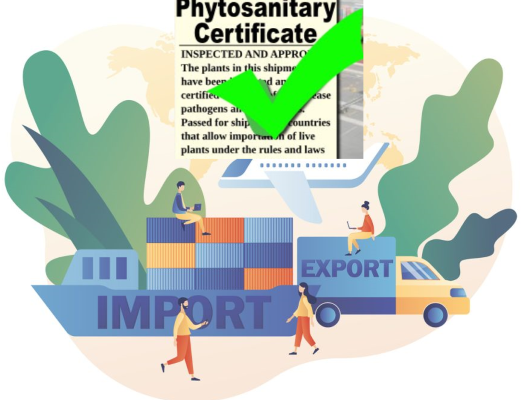Further to our report earlier in the year advising that paper phytosanitary certificates for imports must conform with ISPM12, the Department of Agriculture, Fisheries and Forestry (DAFF) has today (15 May) issued another notice, IAN 115-2023: Update – Australia’s importing country requirements for phytosanitary certificates from 01 July 2023.
This notice provides further information to that given in the previous IAN 02-2023, by clarifying Australia’s importing country requirements for phytosanitary certificates that have been electronically stamped/signed and where they include a QR code or weblink to enable online verification of the document. Those requirements are as follows.
Australia accepts the following formats of phytosanitary certificates:
- Original, and certified copies, of phytosanitary certificates (paper or pdf) issued by trading partners that have been dated, stamped, and signed.
Phytosanitary certificates that do not have a pen-inked signature, printed signature, wet stamp or printed stamp must meet all of the below criteria:
a. A stamp or logo on the document of the exporting NPPO (National Plant Protection Organisation).
b. An electronic signature and/or a statement from the exporting authority that the phytosanitary certificate is electronically signed/approved.
c. A QR code or weblink to enable online verification of the document. - Electronic certificates delivered via an agreed, secure government-to-government digital exchange, known as electronic certification or ePhyto/eCert. As of May 2023, Australia currently only has such an arrangement with New Zealand for use in import clearance.
From 01 May 2023 onward, brokers or self-reporting importers lodging under a Class 19 approved arrangement must ensure that paper phytosanitary certificates have been signed, dated and stamped.
QR codes or website links to the NPPO’s online verification system may be used to address any concerns about certificate authenticity.
Australia currently only has what is known as Parallel Exchange status with Indonesia. Countries sending ePhytos or eCerts to Australia without prior agreement and arrangements for electronic exchange cannot be accepted. Paper certification continues to be required until ePhytos or eCerts are bilaterally negotiated between Australia and the exporting NPPO.
As licensed Customs Brokers and International Freight Forwarders, Colless Young offers you professional advice on clearance through Customs and Biosecurity, ensuring correct documentation and appropriate quarantine treatments. We provide a complete range of import and export logistics services, both air and sea cargo, including warehousing and trucking, at all major Australian ports and airports.

